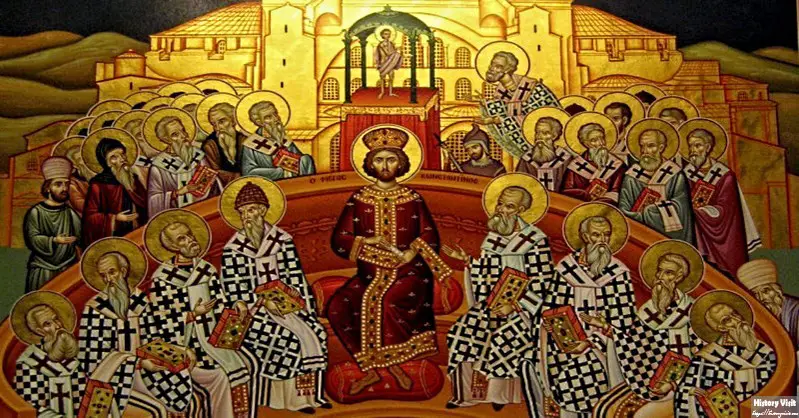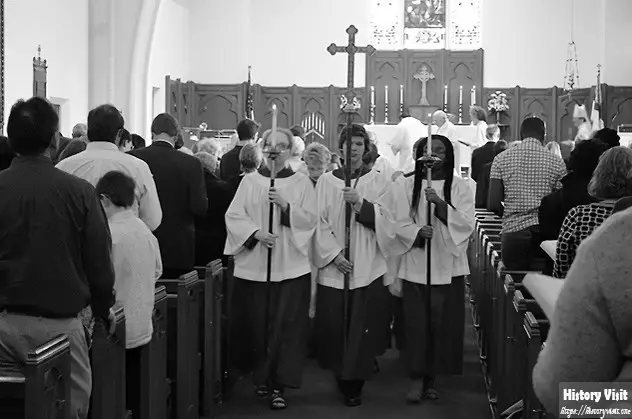Episcopalian Beliefs: A Complete History and Origins Explained

Introduction
Episcopalian history is deeply tied to Christian tradition. Episcopalian beliefs play a central role in shaping this journey. From its origins, the church valued both scripture and community practice.
The history begins in England, then spreads to America and beyond. Each step shows a balance between tradition and change. Episcopalian beliefs continued to adapt with different cultures and contexts.
This article explores the development of Episcopalian history. It also explains the evolution of Episcopalian beliefs. Understanding these foundations reveals how the church continues to grow today.
Origins of Episcopalian History

Episcopalian history began with the English Reformation. King Henry VIII broke from Rome in the 16th century. The split created the Church of England, emphasizing both scripture and reason.
Episcopalian beliefs trace back to this early separation. The English church kept many traditions but rejected papal authority. This gave believers both freedom and structure. It also introduced debates on authority and scripture.
The Anglican tradition shaped Episcopalian identity. Early leaders insisted on order, sacraments, and community worship. Episcopalian beliefs reflected these principles of balance between scripture, tradition, and reason.
Over time, the faith crossed the Atlantic. Colonists in America carried Anglican practices. This would later evolve into distinct Episcopalian identity. The foundation for Episcopalian beliefs was already set.
Growth of the Episcopal Church in America
When English settlers came to America, they brought their faith. Churches were built in many colonies. Anglican worship connected settlers to their homeland.
After the American Revolution, the church faced change. Ties to England weakened, but faith remained strong. Leaders created the Protestant Episcopal Church. Episcopalian beliefs helped form its identity.
This new church focused on independence. Bishops gained leadership roles. Sacraments were emphasized. Episcopalian beliefs about scripture and worship gave stability during political change.
By the 19th century, the church expanded widely. Schools and missions spread its message. Episcopalian beliefs reached both rural and urban communities.
Episcopalian Beliefs in Worship

Worship is central to Episcopalian beliefs. Services focus on scripture, prayer, and sacraments. The Book of Common Prayer guides these rituals.
Liturgy holds a special place. Episcopalians value order and tradition. Music, prayers, and readings follow a set pattern. Episcopalian beliefs emphasize unity through shared worship.
The Eucharist is central. It symbolizes Christ’s presence. Episcopalian beliefs teach that sacraments bring grace. Regular communion strengthens community bonds.
Episcopalians also value participation. Laypeople read scripture and assist in worship. This reflects shared responsibility. Episcopalian beliefs highlight the importance of community in faith.
Episcopalian Beliefs and Theology
Theology in Episcopalian history reflects balance. Episcopalians value scripture, tradition, and reason equally. This threefold approach is called the “three-legged stool.”
Episcopalian beliefs reject extremes. The church accepts diversity of thought. Members may hold different views on doctrine. Still, unity remains through worship and shared values.
Sacraments form the core of theology. Baptism and Eucharist are central. Episcopalian beliefs hold that these sacraments show God’s grace. Other sacraments support life’s milestones.
Reason is also valued. Episcopalians believe faith should engage the mind. Questions are welcome. Episcopalian beliefs allow room for dialogue and growth.
Episcopalian History and Social Engagement
The church has long engaged with society. From early missions to modern reforms, Episcopalian beliefs inspired action.
During the 19th century, Episcopalians supported schools and hospitals. They served both rich and poor. Episcopalian beliefs encouraged care for others.
In the 20th century, social justice grew important. Episcopalians joined civil rights movements. Episcopalian beliefs emphasized dignity and equality. Many leaders spoke against racism and inequality.
Today, the church continues activism. Issues like climate change and poverty are addressed. Episcopalian beliefs guide this outreach. Service remains a key practice.
Episcopalian Beliefs and Education
Education has always been central to Episcopalian history. The church founded many schools and colleges. These institutions shaped leaders in both faith and society.
Episcopalian beliefs value knowledge. Faith and reason work together. Students were taught both scripture and science. This encouraged balanced learning.
Many universities, like Sewanee, have Episcopal roots. These schools shaped generations of thinkers. Episcopalian beliefs promoted curiosity and moral responsibility.
Education extended beyond elites. The church also supported community schools. Literacy and learning spread widely. Episcopalian beliefs encouraged growth for all people.
Global Spread of Episcopalian History
Episcopalian history did not remain in America. Missionaries traveled worldwide. They carried faith and education abroad.
In Africa, Asia, and Latin America, missions grew. Schools and hospitals followed. Episcopalian beliefs blended with local traditions. Communities adapted the faith.
The Anglican Communion formed. This global network connected churches. Episcopalian beliefs provided unity while allowing diversity. Each region expressed the faith in unique ways.
Today, the Episcopal Church is global. Membership continues to expand. Episcopalian beliefs remain adaptable. The history shows a faith both rooted and flexible.
Challenges in Episcopalian History
Episcopalian history includes struggles. Conflicts over theology and practice arose often. Disagreements tested unity.
The 20th century brought debates. Issues of gender and sexuality created division. Episcopalian beliefs were questioned. Some members left the church.
Despite conflicts, dialogue continued. The church worked for reconciliation. Episcopalian beliefs in reason supported open discussion. Healing took time.
Challenges remain today. Membership has declined in some regions. Yet Episcopalian beliefs endure. The church adapts to modern issues while holding tradition.
Episcopalian Beliefs and Modern Identity
Modern Episcopalians embrace diversity. The church welcomes varied perspectives. Episcopalian beliefs create space for inclusivity.
Women gained leadership roles. They became priests and bishops. This reflected growing equality. Episcopalian beliefs affirmed this progress.
The church also affirms LGBTQ+ rights. Same-sex marriage is recognized. Episcopalian beliefs emphasize love and justice. This inclusivity shapes modern identity.
Technology also plays a role. Worship streams online. Faith communities connect globally. Episcopalian beliefs adapt to changing times.
Conclusion
Episcopalian history reveals a faith both ancient and modern. From England to America, the journey shows growth. Episcopalian beliefs guided every step.
The church faced challenges, yet endured. Worship, theology, and outreach shaped its character. Episcopalian beliefs offered strength during change.
Today, Episcopalians live a tradition of balance. They value scripture, tradition, and reason. Episcopalian beliefs continue to inspire service, worship, and unity.


